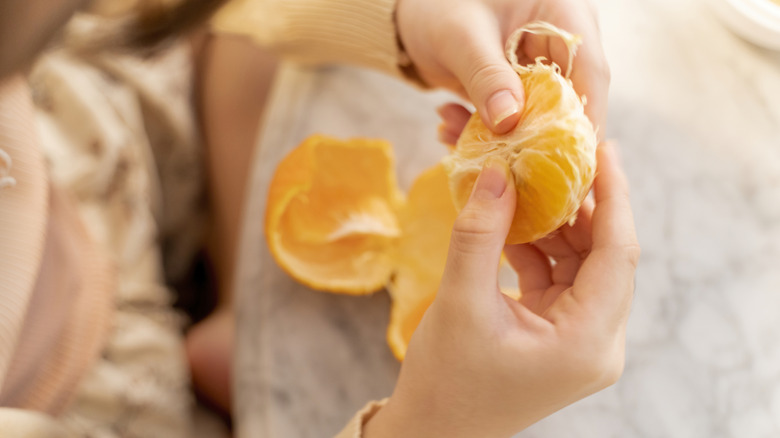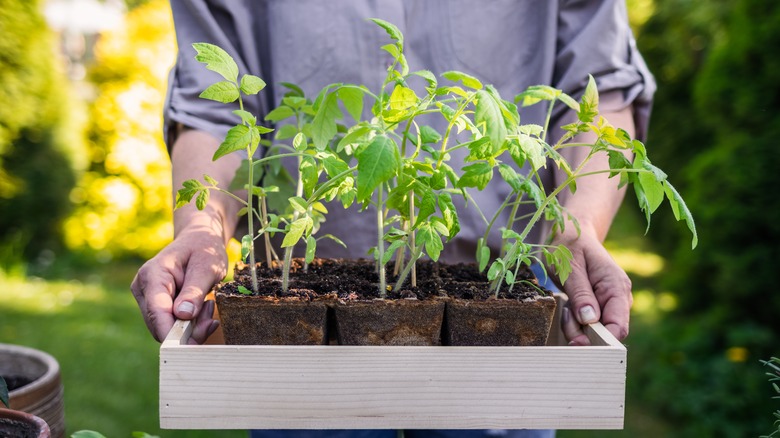Gardeners Should Really Think Twice Before Throwing Out Citrus Rinds
With more awareness about the impact that using plastic has on the environment and our health, many people are turning away from using plastic growing containers in the garden and trying to find more eco-friendly options. If you have an in-ground garden bed for your vegetables, then it is probably pretty easy to avoid using plastic pots. However, the problem comes when you have to start seeds indoors. Some plants — like tomatoes — have a long growing season and need to be started indoors in the early spring and then moved outside only once the ground thaws. So, how can you avoid using those plastic seed trays for these situations?
While we've all heard about using eggshells as seed starter pots, a typical chicken egg is quite small and doesn't have enough space for most seedlings. So, instead, many gardeners have started using citrus rinds. The empty rinds of larger citrus fruits (like oranges, grapefruits, and pomelos) make for the perfect eco-friendly seedling starter pots because they provide more growing space than eggshells but can still be buried directly into the soil of your garden once the seedlings are ready to be planted.
Benefits of adding a little citrus to your garden
Just like planting seedlings in eggshells adds a little calcium to your garden soil, planting seedlings in citrus rinds helps add nitrogen, phosphorus, and potassium, which are all beneficial nutrients for garden plants. Plus, although it will likely take around six months for the rinds to completely decompose, once this happens, the citrus rinds will improve the soil's all-around quality making it a better place for both plants and good microorganisms.
If that wasn't enough, the natural oils present in the rinds of all citrus fruits can act as a deterrent for many pests, from insects to animals. In fact, orange peels are often cited as one of the best ways to keep cats out of the garden. The one caveat to adding orange peels directly into your soil is that they will make your garden slightly acidic. Because of this, citrus peel starter pots are best used with plants that prefer soil with a lower pH like peppers, strawberries, hops, shallots, radishes, and many common kitchen herbs like oregano, thyme, rosemary, chives, and lemongrass.
Other environmentally friendly starter pot ideas
So, if you want to start a plant that doesn't necessarily like acidic soil and needs more space than what half an eggshell can provide, you may need to look for other eco-friendly starter pot options. Luckily, there are plenty to choose from. The first option is to use a cardboard egg carton. This works well because the carton is already shaped like a seed starter tray, and many companies make their cartons out of biodegradable and recyclable materials. Other great environmentally friendly starter pot options include origami boxes made from newspaper and empty toilet paper or paper towel rolls.
If you want to step back from biodegradable and move to reusable, then nothing is better than terracotta clay pots. These pots not only look good in the home with their deep rust-orange color but are also eco-friendly and durable. Lastly, you can simply invest in a soil blocker, which is a little metal machine that is first filled with dirt and then pressed to create small compact squares of soil that can stand on their own and host seedlings. Soil blockers eliminate the need for any container at all — and what's more eco-friendly than that?


